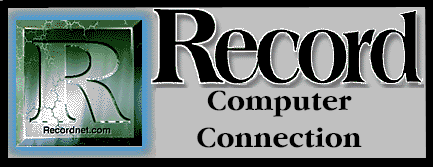

I asked what applications were being used. "Just the very basics", he replied. "Windows, WordPerfect, Works, CD ROM stuff, America Online, a few games, PrintShop Deluxe, Quicken, StreetSmart some other stuff and three years of saved files and documents." Diagnosis: Time for a thorough hard disk cleaning!
It is not uncommon for old files and programs to accumulate, unnoticed, on the hard disk. Most people never realize they are running out of hard disk space until the moment that dreaded message echoes on the screen. You should be aware, at all times, of your hard disk capacity and space available. Every couple of months you should examine the contents of your hard disk to be sure only the necessary files are taking up space on your system.
In Windows, you can easily begin your seek and destroy mission by running the Windows File Manager. Look in the lower left hand corner and you will see a message indicating how many MB or KB are FREE and the TOTAL size of your hard disk. If the bytes free are less than 10MB you are running dangerously low on hard disk space, by today's standards.
Scroll to the top of the directory listing on the left-hand side of your screen. Each one of those yellow file icons represents a program directory or subdirectory. As you point and click on each of those directories, their contents, or files, are displayed on the right-hand side of your screen.
Each of the directories should be an application or program you use regularly, or directories necessary for your computer to operate. For example, DOS, MOUSE, VIDEO, WINDOWS, are all directories needed for your system to function. WPWIN, MSWORKS, QUICKEN and WINWORD are program directories for your applications.
If you find applications that you rarely use, or were pre- installed and never used, you can delete them from your hard disk by highlighting the directory icon and pressing the delete key on your keyboard. DO NOT DELETE ANY PROGRAM UNLESS YOU ARE ABSOLUTELY SURE IT IS NOT A NECESSARY SYSTEM PROGRAM. IF IN DOUBT...DON'T.
As you open each directory and look at it's contents, look for files that end in .tmp These are backup or temporary files that were usually created when files were not saved properly or your system locked. These can usually be safely deleted. If you are unsure, begin the application and open the file. If it is old, unwanted, or unreadable, close the application then delete the file from the File Manager.
In your DOS directory, look for the filenames FILE0001, FILE0002, etc. These are "lost clusters or chains" that occured either during a system lock-up or an irregular end of session. These files can also be safely deleted.
If you see old documents that you think you might want to save, copy them to a floppy diskette by highlighting the files and dragging them over the A:drive icon in the File Manager. Once they are copied, delete them from your hard drive. As you delete files and unwanted applications, you will notice the "FREE" bytes begin to increase.
If you have programs or documents that are used only intermittently, you might consider compressing or "zipping" them on your hard disk with a utility such as PKZIP. Using the command PKZIP -rp you can compress entire directories on your hard disk while keeping the subdirectory structure perfectly intact.
Deleting program directories from the File Manager often does not remove all the related files. Windows programs will often add files to the Windows directory as well. These are best cleaned out with a utility program like MicroHelp's UnInstaller. This is a great program that ferrets out all those leftover files that might be unrecognizable to you.
As to the Mayday call, a little digging and diligence freed up 25MB of hard disk space that
was just cluttered with old documents, .tmp files, and never-used programs. Keeping your file
and directory structure fine tuned ensures optimal system performance and spares you future
grief.
Feedback? E-Mail cschuler@ceeprompt.com